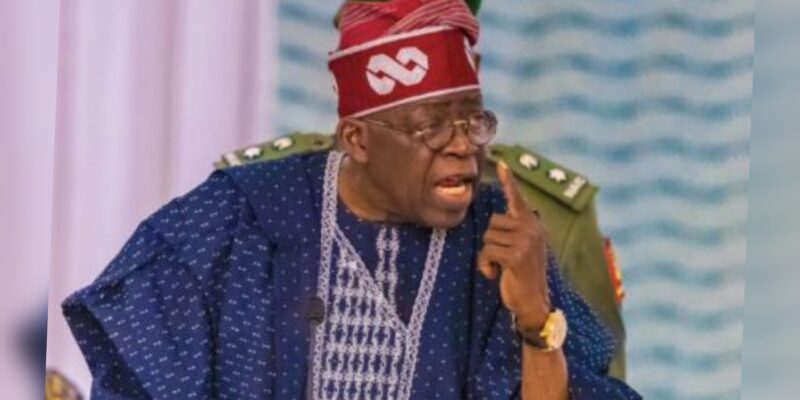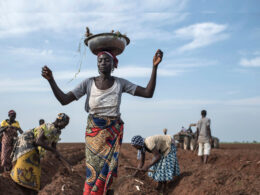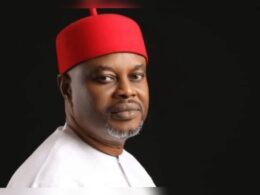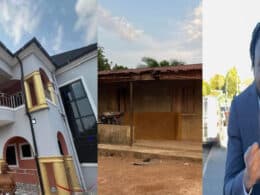Tinubu said the global demand for these resources has triggered a new scramble for Africa’s minerals, making the continent more crucial to the world economy than ever before.
New York, United States – President Bola Tinubu has highlighted the paradox of Africa’s resource wealth and its underdevelopment, attributing it to the continent’s reliance on exporting raw minerals rather than processing them locally.
Speaking at the African Minerals Strategy Group (AMSG) meeting, held on the sidelines of the 79th United Nations General Assembly session, President Tinubu, represented by Vice President Kashim Shettima, noted that Africa holds a significant portion of the world’s mineral reserves, including 92% of global platinum, 56% of cobalt, and 54% of manganese. However, the continent remains underdeveloped because these resources are primarily extracted and exported to foreign countries for refining and manufacturing.
The Vice President’s spokesperson, Mr. Stanley Nkwocha, released a statement in Abuja summarizing the key points made during Tinubu’s address. According to the president, the longstanding practice of exporting raw minerals from Africa has only perpetuated poverty on the continent and hampered economic growth.
“The extraction of raw minerals without local processing deepens Africa’s underdevelopment and prolongs its economic challenges,” said Tinubu. He emphasized that Africa must break free from this dependency on foreign markets and adopt a new agenda prioritizing local value addition. “A situation in which raw minerals are extracted from our countries, exported, refined, and sold back to us as finished products merely consolidates the foundations of our misery and pushes us further down the depths of underdevelopment.”
The president called for a strategic shift to local processing and manufacturing, which he said is essential to the continent’s industrialization and sustainable economic growth. He pointed to the evolution of lithium-ion technology, used in portable consumer electronics and electric vehicles, as a major opportunity for Africa. He noted that Africa possesses 92% of global reserves of platinum, 56% of cobalt, 54% of manganese, and 36% of chromium—minerals critical for the production of modern batteries.
Tinubu said the global demand for these resources has triggered a new scramble for Africa’s minerals, making the continent more crucial to the world economy than ever before. He underscored the importance of localizing the entire mineral value chain within the continent.
“We live in a world of electronic mobility in which lithium-powered batteries provide higher specific energy, higher energy density, higher energy efficiency, longer cycle life, and longer calendar life,” Tinubu said. “In short, the world needs Africa today more than ever.”
The president assured the AMSG of his administration’s commitment to adding local value to Nigeria’s mineral resources, noting that this aligns with the group’s broader vision. He also highlighted Nigeria’s potential as a key player in the continent’s economic transformation, citing its market of over 226 million people and the success of its $10 billion telecom sector as proof of the country’s growth potential.
Minister of Solid Minerals Development and Chairman of the AMSG, Dele Alake, echoed the president’s sentiments. He criticized the traditional model of mineral extraction in Africa, where raw materials are exported for processing abroad, resulting in the loss of economic opportunities and jobs on the continent.
Alake proposed a shift towards local value addition as a strategy for enhancing Africa’s economic independence and boosting its GDP. “The pattern of trade has left African nations vulnerable, forcing them to import finished goods at inflated prices,” he said.
The General Secretary of AMSG, Mr. Moses Engadu, called for a renewed vision and political will among African leaders to ensure that value addition becomes a prerequisite for granting mineral licenses to any investor.
The AMSG roundtable, attended by representatives from investors, development partners, multilateral institutions, and major financial institutions, aimed to foster discussions on transforming Africa’s mining industry through local value addition and industrialization.










Join our Channel...